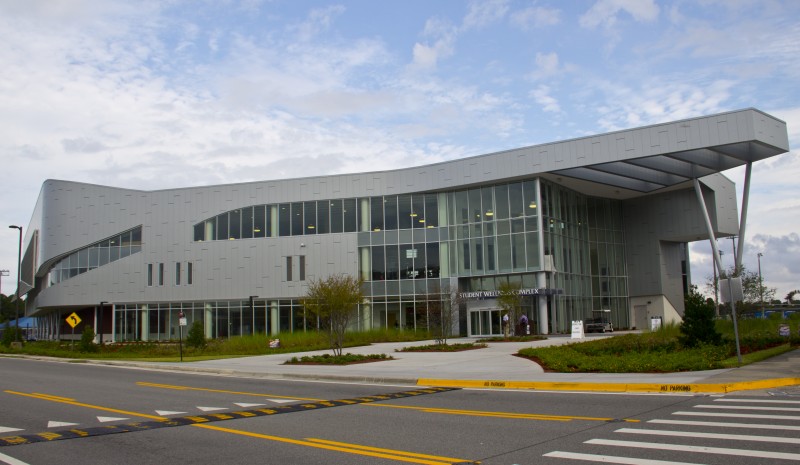
Although the UNF Student Wellness Complex may be the sight of a police report UPD discovered is untrue, highlighting a woman’s decision to wait to file a report engenders and perpetuates rape-cultural behavior.
If you’ve been keeping up with UNF news, you’re probably familiar with the sudden outbreak of false police report filings since October 2011. Of the four total, two of those were cases of sexual crimes: battery and assault.
Let’s face it, when the last report came out, most of us didn’t believe it.
This practice has become so prevalent in our campus alerts, many students cried fake at the last alert long before UPD announced it as false.
Other articles and statements from university leadership should and will focus on how damaging and illegal filing false police reports can be. Read them — they’re sure to be great.
In one such story, the Spinnaker details how Courtney Buchman, a UNF communication junior, called UPD when an employee of hers claimed to have been assaulted at the UNF Student Wellness Complex.
UPD began investigating on Aug. 22 and issued a student wide alert.
One particular line of the campus alert issued Aug. 22 should catch your attention: On the very last line, it was boldly stated that the alleged victim waited a day to report the sexual assault to the police.
When UPD was asked about that addition, they claimed they wanted to making the timing clear to the students.
However, this campus alert, issued to every student with a UNF email address, openly called into question the actions of the alleged victim. It was sexist, condescending and has no place in a public institution of learning.
It served the purpose of stating to student: Don’t get raped, and if you do, make sure you handle it in a logical, precise manner.
While it could be said the inclusion was only an oversight, I would argue that this demonstrates the latent sexism that sadly still exists on modern college campuses. While the criminal justice system still focuses on the actions of the victim and not the perpetrator, we sustain a culture that enables rape rather than one that prevents it.
Yes, we know now that there was no victim. But what if there had been? What if she was traumatized and, unaware of where to turn, waited 24 hours before finding a UPD officer? Would that indicate some sort of shortcoming or blame on the victim? This inclusion seems to me to hint at that.
Bias against sexual assault victims is nothing new. Laws began springing up in the books in the 1970s and 1980s that protected sexual assault victims against their sexual history being brought into question in a courtroom, according to the National District Attorney Association’s website. This was after calling into question a victim’s sexual history as a way of arguing consent became a popular tactic of attorneys.
That was 40 years ago. Who cares, right?
Well, as it turns out, not much has changed. In early 2011, multiple news agencies covered the police officer who made a speech to York University students urging young women to not dress like “sluts” so they wouldn’t be sexually assaulted.
According to the SlutWalk Toronto website, this event — coupled with outrage over overall victim-blaming — motivated the founding of SlutWalk, a series of marches against victim-blaming. Stories abound about women who were attacked wearing long coats or even gym clothes.
It’s not all bad news, however. Slowly but surely groups are popping up that call for greater accountability of those likely to actually commit the crime.
The nonprofit group Men Can Stop Rape has partnered with various campus initiatives across the country to help men be the ones to stop violence against women, according to its website. Billboards and signs demonstrating rape statistics and how men can help their peers to not become rapists have been displayed at colleges such as Florida State University.
One poster featured the text: “When Jason wouldn’t leave Mary alone, I said ‘She’s not into you anymore, let it go.’”
The Where Do You Stand? campaign offers a great platform from which a real change can be made against both victim shaming and rape itself.
We can all be a little pleased that the attack in the UNF Student Wellness Complex was a fake. But it’s important we don’t allow victim blaming to get the best of us and ensure all that Ospreys are treated fairly.
Email Catherine Byerly at content@unfspinnaker.com.







